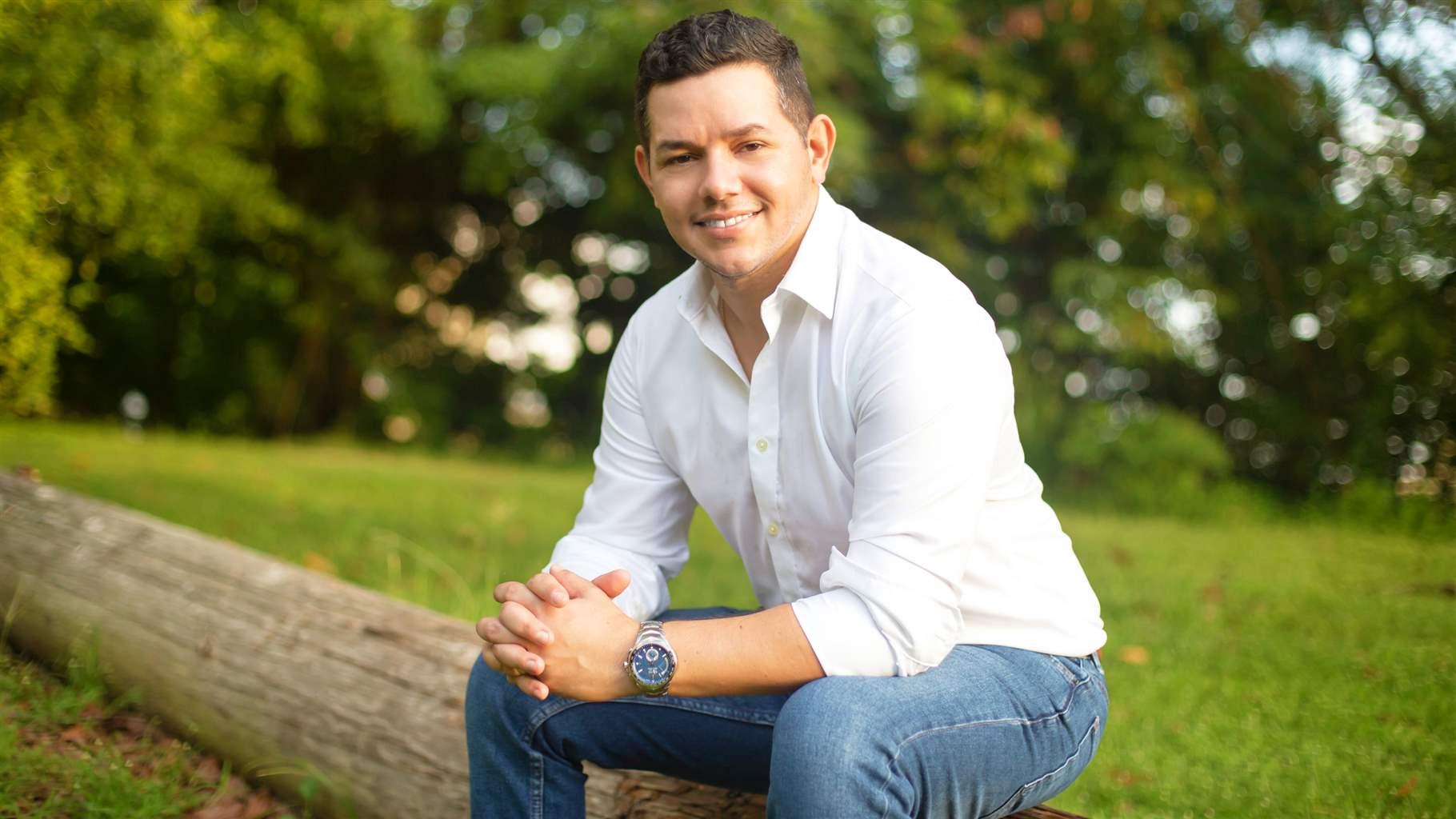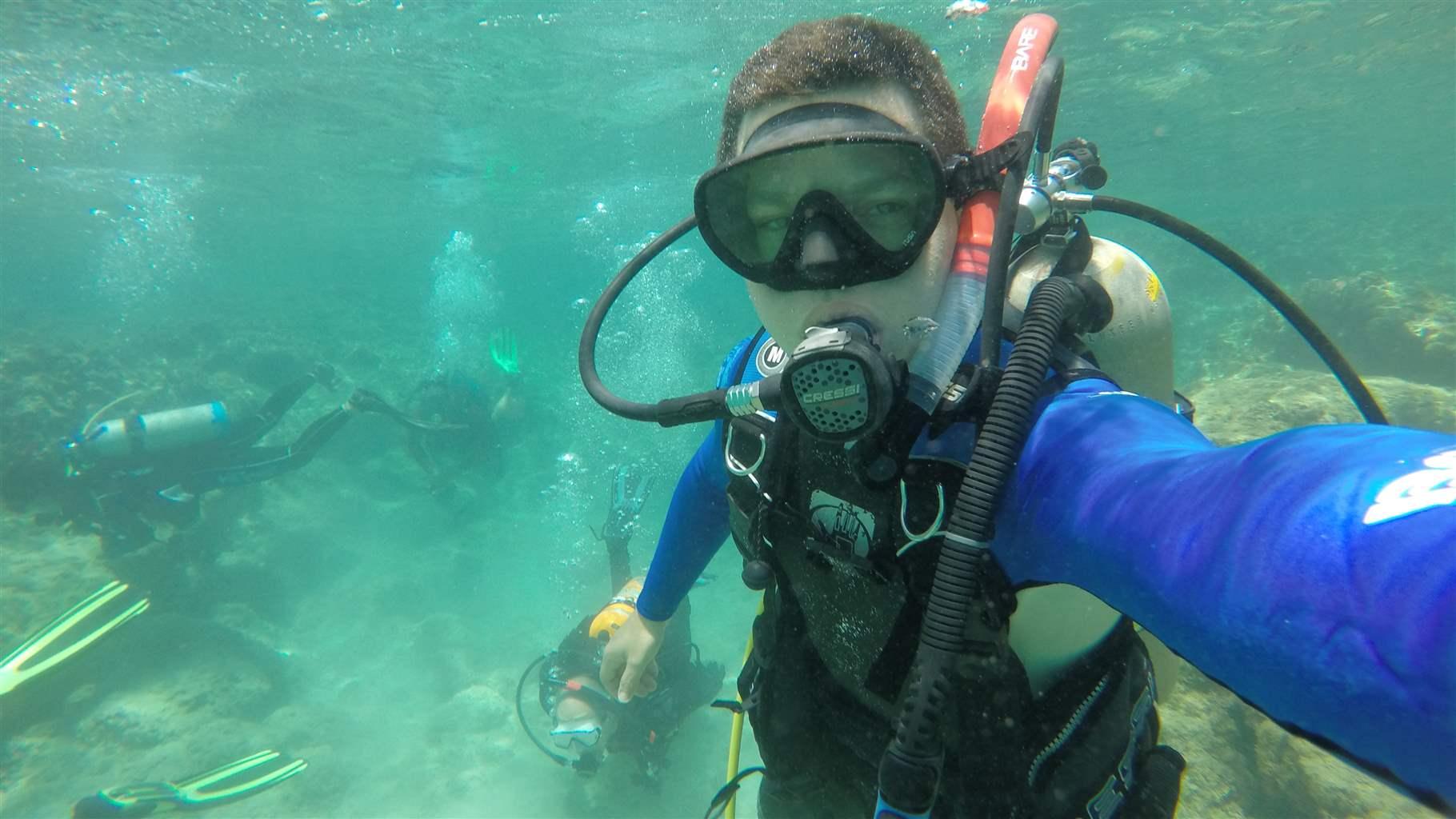Longtime Conservationist Seeks to Shore Up Safeguards for Puerto Rico’s Ocean Treasures
Alberto Mercado is working to develop a new funding source to fortify marine reserves

Puerto Rico designates more than a fifth of its waters as protected areas where migrating whales meet to calve, colorful coral reefs host animals ranging from sharks to parrotfish, and threatened fish such as the Nassau grouper gather to spawn under the full moon.
The marine reserves are designed to safeguard resources through rules such as seasonal limits on fishing and prohibitions on extracting corals. The areas host researchers, serve as tourist attractions, help sustain locals who use the areas to fish, and harbor habitats such as mangroves that help to fortify shorelines against storms.
At The Nature Conservancy, Puerto Rico program manager Alberto Mercado is working to ensure that the protected areas continue to safeguard the valuable assets that power the island’s coastal economies.
This interview has been edited for clarity and length.
Q: How did you get started in marine conservation?
A: When I was in college at the University of Puerto Rico, I would awaken at 3 a.m. on weekends to walk in the protected Humacao Nature Reserve and nearby beaches with rangers from the Department of Natural and Environmental Resources (DNER). We’d monitor and safeguard places where turtles laid their eggs. I was always amazed at how the reptiles traveled such long distances to their nesting sites and how temperature dictated their babies’ gender. I realized that these animals were just one part of a vast underwater world of wonder and that the protected area helped give them a good home. It seemed natural to end up as a biology major and then earn a master’s degree in policy and justice administration from Loyola University in New Orleans. Now I’m in my third year of law school at the Pontifical Catholic University of Puerto Rico.
Q: What’s so special about the Puerto Rico ocean environment?
The Caribbean is amazing. In particular, seagrasses and corals are complex ecosystems that provide food and shelter for many species. You can see green sea turtles feeding on seagrasses, which also provide food for manatees and serve as nurseries for juvenile reef fish. And corals host wildlife ranging from fish, lobsters, and crabs to octopus and sharks. Off the coast of Puerto Rico, these habitats are vital to our fisheries and tourism—and are one reason the government has created 27 marine reserves covering more than 1,350 square miles; 19 of them extend into the water directly from land reserves.
Q: How have your previous jobs prepared you for your current post as The Nature Conservancy’s program manager for Puerto Rico?
I’ve had a number of jobs with nongovernmental organizations and government offices that allowed me to protect natural resources and educate the public about them. While working with the Puerto Rico DNER, I was special assistant to the secretary, director of the bureau of protected natural areas, and a state forester. I was in charge of all the reserves, forests, and marine protected areas of the islands of Puerto Rico, and I represented our territory in national and international forums. Those experiences allowed me to understand firsthand the fundamental challenges facing our island and develop the best strategies to advance our conservation agenda.
Q: And what are some of the challenges facing the island?
Our challenges range from lack of manpower to manage and enforce environmental rules to old sewage systems that pollute nearshore waters. And one fundamental problem is funding. Puerto Rico has suffered from hurricanes, the pandemic, earthquakes, and a fiscal crisis, among other problems. So there are many competing priorities and not enough money for the environment, particularly for marine reserves: There aren’t enough people, equipment, or materials to monitor and protect boundaries and the vulnerable resources within.
Q: So what are you doing about the funding dilemma?
At The Nature Conservancy—where our focus is on coral reef conservation, sustainable fisheries, marine resource management, and addressing climate change—I’m in charge of a new initiative called the Puerto Rico Coastal and Marine Protected Areas Fund. The Pew Charitable Trusts is among the organizations—along with The Nature Conservancy, Puerto Rico DNER, the Caribbean Biodiversity Fund, and the National Oceanic and Atmospheric Administration’s Coral Reef Conservation Program—that are collaborating to get the initiative off the ground. My big focus now is to raise money—from other nongovernmental organizations, from charitable foundations, and from the private sector in addition to some of the federal funding allocated to Puerto Rico— to help manage the protected areas.
Q: How will that money be used?
The money will be used to support management of the marine reserves, which can range from conducting research and monitoring water quality to habitat restoration. In the long term, properly overseeing our marine assets will benefit the tourism industry, more than 1,000 small businesses associated with marine resources, and all Puerto Ricans because the ocean supports our economy and way of life.
Q: What inspires you to do this work?
My passion is protecting our planet. I fight every day just to contribute the equivalent of a grain of sand to conserve our natural resources. And I will never give up until humans understand how important it is to protect our environment. We have a lot of work to do.








